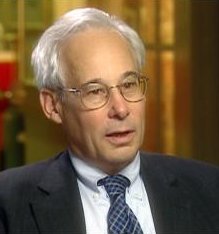Health reform rides on Dr. Berwick teaching us to just say no


Dr. Berwick is expected to be nominated the next head of Medicare and Medicaid.
Dr. Berwick has made cost-effective care his life's mission. He founded the Institute for Healthcare Improvement in 1991.
Berwick's political skills were on display in the 100,000 Lives campaign, a nationwide initiative IHI launched in 2005 to reduce infections, bad drug interactions, and pneumonia associated with the use of ventilators in surgery.
His appointment was pre-announced on March 28 and most observers seem over-the-moon about the selection. The only uncertainty I can see is whether he is willing to take on the job.
Berwick may be best-known for his "no needless" list, on which you can expect care to be centered assuming he takes the job:
- No Needless Deaths
- No Needless Pain or Suffering
- No Helplessness in Those Served or Serving
- No Unwanted Waiting
- No Waste
- No One Left Out
American Healthcare, quoting Bush Administration acting CMS director Kerry Weems, has called the combination of Berwick and ONCHIT Dr. David Blumenthal a health IT "dream team," so confirmation by the Senate does not seem to be a serious issue.
Journalists focus heavily on what the President does -- the legislation he passes, the actions he takes, the speeches he gives, his personal success exercising domestic and foreign power. Less attention is given to his appointment power, the records of those he gives power to, and what they do with that power.
If health care is President Obama's Vietnam then Blumenthal and Berwick -- both of whom came from Harvard, are the "best and the brightest." Their charge is to find ways, using technology and all the power of the government, to convince the medical industry that more care is not always better care, and saying no can be good medicine.